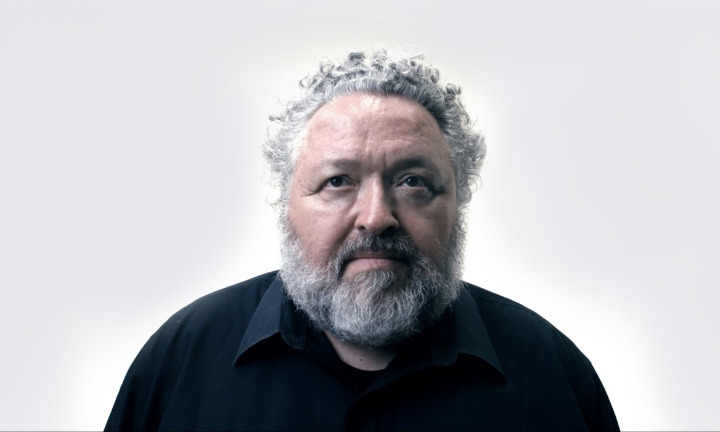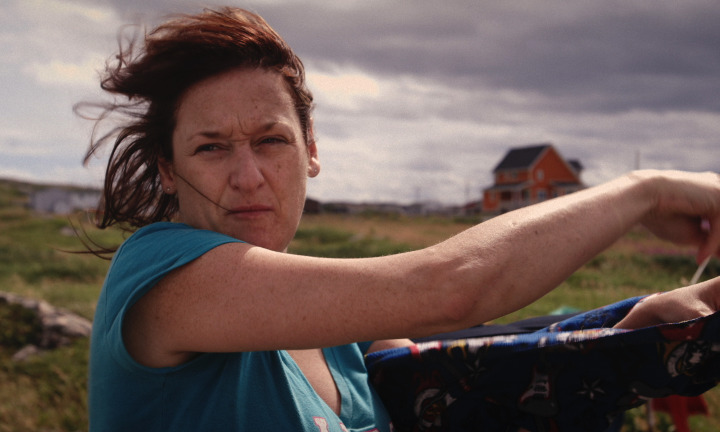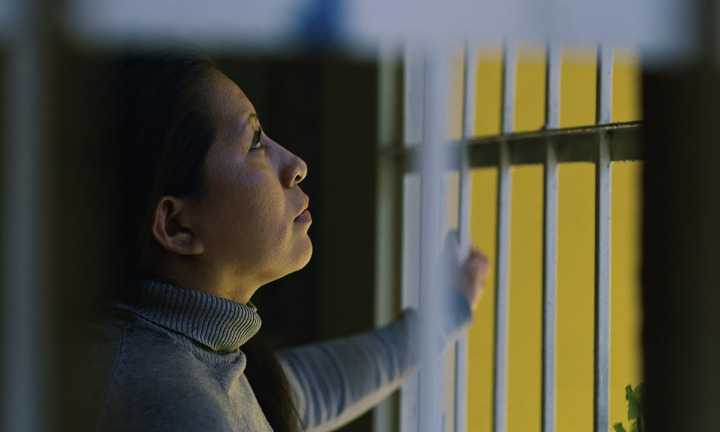Toronto’s acclaimed documentary festival Hot Docs is back and we’re still attending it virtually. As Gershwin once put it, “How long has this been going on?” Well over a year and counting, festival goers, artists and curators are still Zooming each other and seeing important work on computer screens. Hot Docs will be available for people to view across Canada, but not in other countries, until midnight on May 9—a nice chunk of time to invest in seeing different and challenging forms of reality. Aficionados of documentaries and people who just want to see something unique will be able to view everything from a profile of a visionary Canadian designer (Mau) to a stunning streetwise adaptation of a famous 18th century opera “ballet” (Gallant Indies) to a quirky film that reveals the radical politics of the famously blind and deaf Helen Keller (Her Socialist Smile), to a tale of an Indigenous woman running for the Mexican presidency (The Spokeswoman).
You want facts? Hot Docs is screening 219 films, including 86 world premieres, 41 international premieres, and 28 Canadian premieres. The programmers watched 2300 films (or at least part of them), and selected documentaries from 66 countries ranging from the U.S. (52 films) and Canada (49) to six each from Australia, Colombia, Israel and Italy to one from such nations as Croatia, Libya, South Korea, Syria, Taiwan and Ukraine. If you watch a lot of these docs, you’re bound to get a global perspective, even in a year when COVID made every place somewhat similar to each other.
In order to make the diverse film selection more understandable, the Hot Docs team led by its Programming Director Shane Smith has broken the festival program into sections with titles like International Spectrum, Canadian Spectrum, Markers, Big Ideas, Persister, Systems Down, Artscapes, The Changing Face of Europe, Deep Dive, Nightvisions and World Showcase. As the carpet layer might say to the contractor in a convention centre, “It’s a lot to cover,” but let’s give it a try by, with the exceptions of Big Ideas and Canadian Spectrum, only citing two of the most exciting films, in each series.
Big Ideas, Hot Docs’ Speaker Series, always attracts attention due to the interviews, which take place after the screening, with filmmakers, experts and some of the subjects profiled in the docs. This year, the philosopher-designer Bruce Mau, underwater photographer and eco-activist Valerie Taylor, Sesame Street alumni, WeWork and beauty experts are on hand to discuss the films Mau, Playing with Sharks, Street Gang: How We Got to Sesame Street, WeWork: or the Making and Breaking for a $47 Billion Unicorn and Subjects of Desire. For many, these are must see events.
Canadian Spectrum is the annual celebration of this country’s finest docs. It’s fair to say that Hot Docs’ doc program does far better for our national filmmakers than TIFF. This year’s selection is extraordinarily rich; almost all deserve a shout out. I’ll just highlight five. A.rtificial I.mmortality is a brilliant examination of clones and what they may ultimately mean for the future of humanity. Archipelago, a gorgeous animation feature, maps Quebec in mythology, history and geography; you may not understand all of its intricacies but the trip is well worth taking. Still Max profiles the avant-garde artist Max Dean, who confronts mortality with humour, fierce purpose and masterful skill. Kímmapiiyipitssini: The Meaning of Empathy shows how Blackfoot-Samí filmmaker Elle-Máijá Tailfeathers’ Kainai First Nation responded to opioid use in the community: it’s a truly inclusive doc. Grey Roads is a beautifully shot inter-generational doc set in rural Ontario, made by Jesse McCracken about himself and his family.
The Changing Face of Europe, a collaboration between Hot Docs and European Film Promotion (EFP) presents 10 features, which are emotional and personal. Two fascinating docs are Molecules, set in COVID-struck ghostly Venice, where a filmmaker confronts his memories of his father, and The New Plastic Road about the impact the modern Silk Road between China and Europe has on a family whose livelihood is affected by its dangerous existence.
International Spectrum presents 10 feature films, which are eligible for multiple awards at the festival. The selection is carefully selected: as Shane Smith says, “the stories presented are profound, poetic and insightful.” And visual too. Gaucho Americano shows the vast open spaces of the U.S. wild west, seen now through the eyes of two Chilean gauchos working in Idaho. Magaluf Ghost Town is a provocative look at a decadent beach community in notorious Majorca, Spain, which will hardly be endorsed by the island’s tourist office.
World Showcase is quite a lengthy program: 24 features, seven mid-length docs, 18 shorts. Given that it’s covering the globe, that makes sense. Here’s two features among the 24 that are well worth seeing; obviously there are more. Life of Ivanna is a compassionate look at an Indigenous (Nenets) woman in Russia’s vast Arctic dealing with her ne’er-do-well husband and many children; the unusual setting and Ivanna’s likeable personality makes it well worth seeing. The Colonel’s Stray Dogs is an unusual real-life story about the filmmaker’s tough Libyan father, who secretly conspired against Gaddafi for 30 years.
Artscapes is Hot Docs’ annual tribute to the creative process and how it relates back to the societies from which artists get their starts. No Hay Camino—There is no Path is a quite personal film by one of Europe’s finest auteurs Heddy Honigmann, who confronts her mortality by returning to film locales and people who have influenced her in the past. Firestarter—The Story of Bangarra is about an Australian Indigenous family, who have developed a famous—and important—dance troupe.
Persister is a feminist series directed by women, which showcases films in which females from teenagers to matriarchs make a difference in their societies. La Madrina profiles a former leader of the Savage Skulls gang, who is now fighting against gentrification in the South Bronx while Fanny: The Right to Rock chronicles the career and unlikely comeback of the first all-woman rock band to work with a major record label in the U.S.A.
Systems Down, a new Hot Docs program, shows activist films that are advocating for systemic change in a world that badly needs one. The Face of Anonymous offers an insightful though incomplete portrait of Commander X, formerly of Toronto, who turned a “hacktivist” network of geeks into politicos. In a very different mode, Generation Utøya is a caring look at four women who survived the deadly Norwegian attack on the Youth Labor Party and are still finding ways to fight the right wing in their part of Scandinavia.
Markers is Hot Docs’ most formally challenging program. Kudos to curator Charlotte Selb, who has put together a series that is fascinating to watch and analyse. For people who like their docs on the cutting edge, all can be recommended but I’ll only cite two.Users’ filmmaker Natalia Almada deservedly won best director at Sundance for this innovative, wonderfully shot and scored essay on how technology affects us now—and will do so even more in the future. A River Runs, Turns, Erases, Replaces is a truly visual experience, which takes us to the now notorious Wuhan, China, with unexpected observations and results.
Nightvisions is a program intended, as Smith notes, to be filled with “cult classics.” As such, most are about sex or gaming. Acts of Love is a personal doc, featuring co-director Isidore Bethel, about his quest to find a new lover through dating apps and having his dates and himself act out in front of the camera. Canon Arm and Arcade Quest brings back a formerly famous arcade game in order for a marathon—100 hours!—to take place. Rest assured: the films in this series are not your standard docs.
And there’s more…Hot Docs’ ever popular focus on a country’s documentary output is on Colombia this year. According to Shane Smith, Made in Colombia will “introduce you to new talent and their unique voices.” Deep Dive features doc episodic series, of which there are only two this year: The Caviar Connection and Philly D.A. “The rise in long-form documentary storytelling has opened up exceptional opportunities for directors to delve into subjects and explore stories with great insight and depth,” says Smith.
Maybe it’s just as well that true documentary lovers won’t be able to socialize during the festival. There are just too many films to see!











